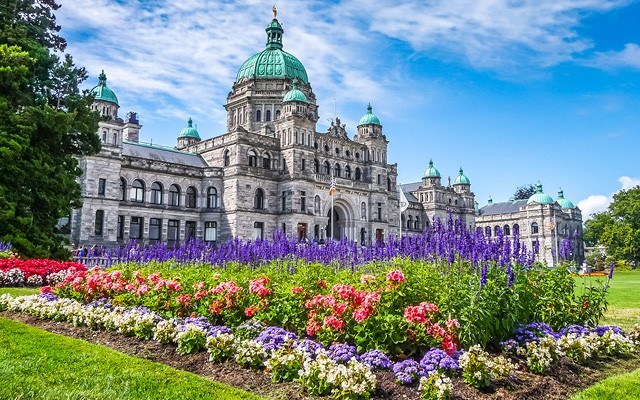B.C.'s political pundits are still catching their breath after the closest election the province has seen in decades — and one that's still awaiting a final result.
"It's cooled off a little bit, but I had a heck of a week last week," said Gerald Baier, associate professor in the University of British Columbia's Department of Political Science.
"Wednesday was just a nightmare because I did CBC Radio on Tuesday (election night) as well, so I was in the studio until like quarter to one or something and then I was back in in the morning for a wrap up."
But the pundits best rest up — there will be much and more to analyze when the final vote counts are announced between May 22 and 24.
As it stands, the BC Liberals hold a slim plurality of seats — 43 to the BC NDP's 41 and the Green Party's three — but one shy of the 44 needed to form a majority government.
Absentee ballots are being counted, and recounts that could swing the election either way are underway in the Vancouver-False Creek and Courtenay-Comox ridings.
In the case of Courtenay-Comox, the NDP candidate won the initial count by just nine votes.
What's most likely to happen is the seat counts either stay the same or the BC Liberals come out on top with the slimmest possible majority, but there are other scenarios in play as well.
Baier referred to an economist colleague's estimate that there is a one in four chance the seat count could change by next week.
"So there is certainly a chance that the numbers will be different, and how those numbers (change) will have a lot of impact on what happens next," he said.
"If it is a tie, the Greens truly are the key to being in government, and it's not super clear where their loyalties lie."
In that scenario, the Green agenda would be front and centre in the initial months of B.C.'s new government in a way it otherwise wouldn't be.
"We'll be talking about the ban on corporate and union donations, some form of electoral reform... because either party, if they hope to get the Green Party support, they keep making that clear it's a deal breaker," Baier said.
"Will we hear more about some of the environmental issues too? I think (Green Party leader) Andrew Weaver hasn't prioritized (those) as sort of deal breakers, but that, I think, Green voters might be more interested in."
An increase in the carbon tax or reconsideration of major pipeline and oil and gas projects might be on the table in that scenario, Baier said.
And if the final count does somehow end up in a tie, it could ultimately reshape B.C. politics forever, as the Green Party would likely use its new-found leverage to push for proportional representation (PR).
"(Weaver) really is in it for the long game, and hoping to fundamentally kind of change the way that our system works here in B.C., because if we have some form of PR the Greens will do better in the future," Baier said.
"British Columbia would fundamentally make laws in a different way than other provinces if we had that kind of change."
The next legislative session will likely be less dramatic if the Liberals claim their slim majority, or the seat count stays the same.
"We've had minority governments before in Canada, and they tend to be potentially creative from the standpoint of policy making because there is a little bit of working across the lines," Baier said. "But I think with this situation you'll have a little less of that, because the legislature is so precarious, even in a tie or even in the slim majority version... the legislative agenda is going to be much more modest than it would be normally."




